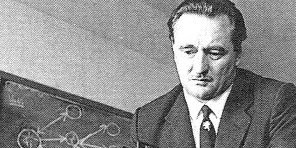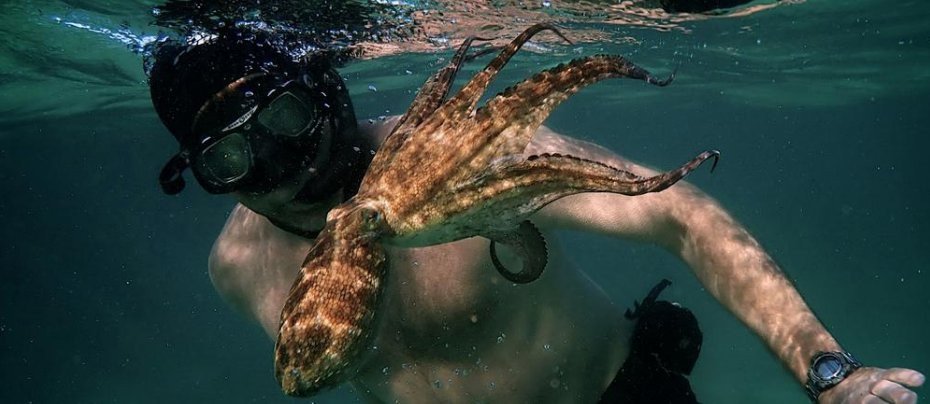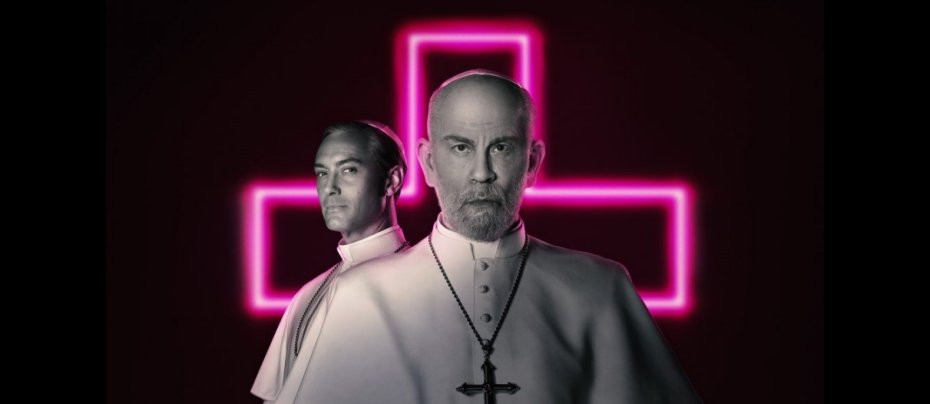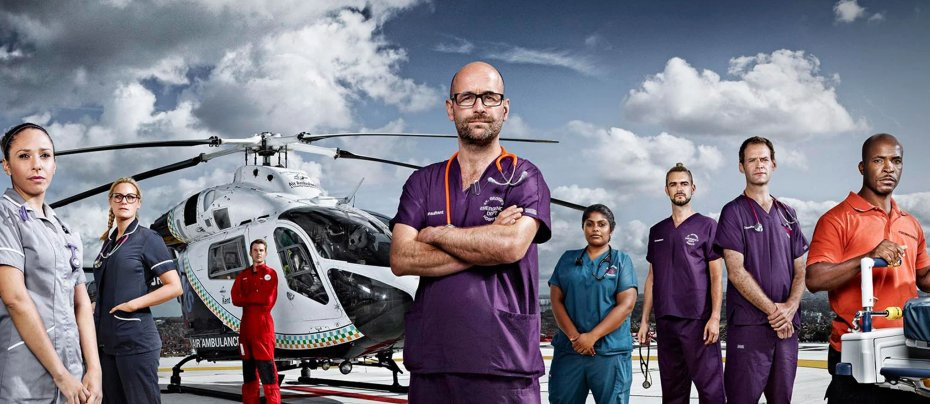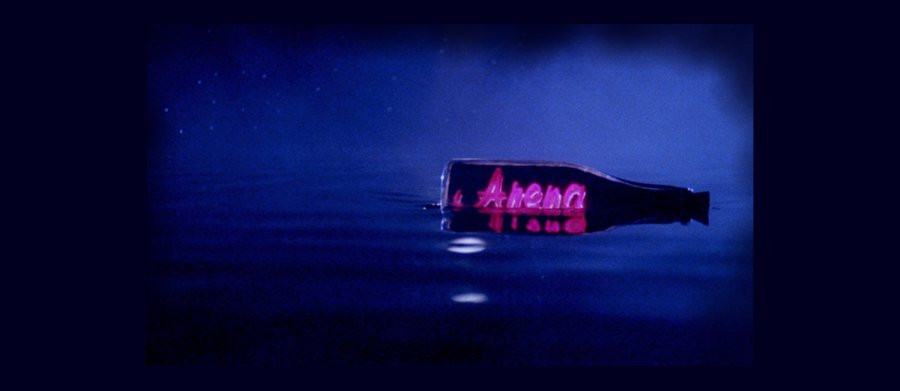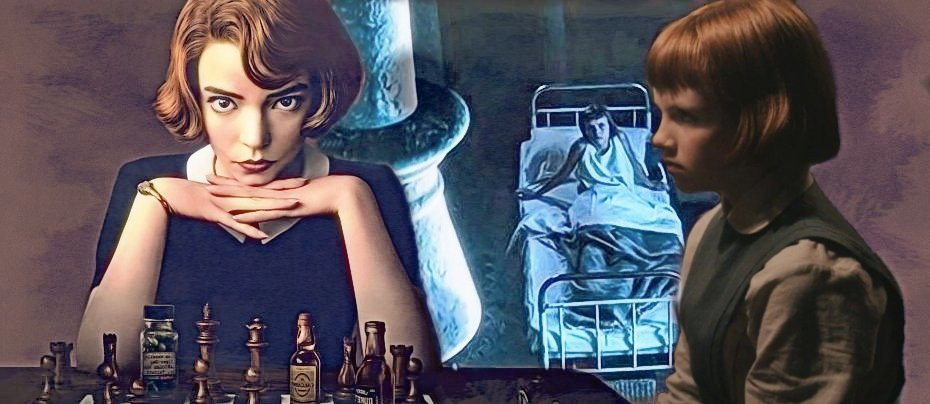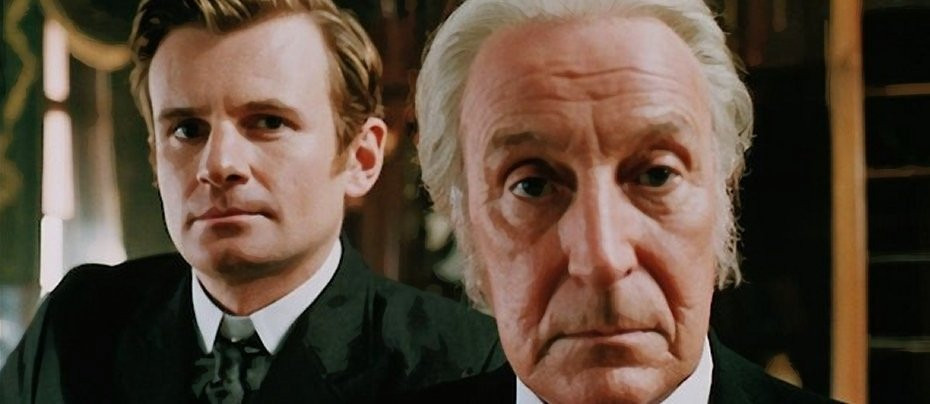
Rise of Empires: Ottoman
2020 - United StatesReview: John Winterson Richards
The Netflix dramatised documentary Rise of Empires: Ottoman is worthy of discussion both because it is a superior example of its genre and because that genre deserves more attention. It is sometimes described as a "docudrama," short for documentary drama, a drama based on documented facts. Yet there is a definite - if not always clear - distinction between a documentary drama, a very broad category that includes very dramatic productions like Roots and Chernobyl, and dramatised documentary. A documentary drama is an actual drama while a dramatised documentary is an actual documentary, usually a historical documentary, that includes re-enactments for greater impact.
It could be argued that Rise of Empires: Ottoman is somewhere in the grey area between the two. It is so well produced that it plays just like a real drama, but the inclusion of a stately voice-over narration by Charles Dance, interviews with modern experts, and some very helpful computer graphics smash the "fourth wall" and make it a documentary. While the story is a good one, and well told, we are supposed to keep ourselves at a detached distance and not immerse ourselves in it as completely as we would in a drama.
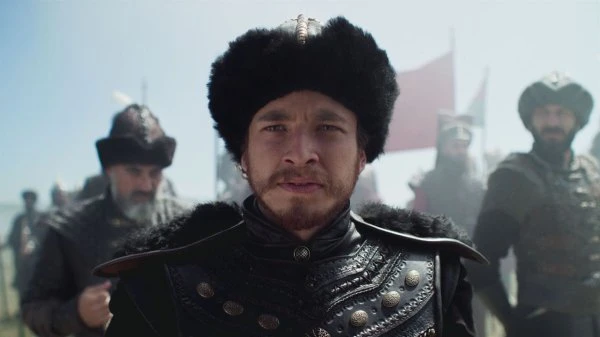
This blurring of the lines between fact and fiction on screen has a long history. The producers of some of the very earliest films liked to pretend, and perhaps to think, that what they were making for entertainment also had educational value, or vice versa. This is reflected in the title cards in old silent movies which attempted to convey helpful information about the background to the stories they were telling. Since audiences were not generally very sophisticated or well-educated, facts were pitched at the level of the lowest common denominator. Thus, the French Revolutionary Danton was introduced to American audiences helpfully as "The French Abraham Lincoln," a comparison as flattering to Danton as it was unflattering to Lincoln.
Of course, entertainment was always going to win over education in the cinema. On television, however, the obligation to educate was always taken more seriously. Nature, arts, science, history, and current affairs documentaries have always been a significant element in programming by major broadcasters for both political and commercial reasons - they are usually relatively cheap. Including scenes in which historical events were acted out was always a mainstay of films and programming for schools, because it is easier to engage children's attention in a story than in a lecture, and this gradually became respectable in more "grown up" documentaries. Such segments usually employed inexpensive unknown actors and were not noted for high production values or accuracy in points of detail.
In recent years, however, there has been an increase in the status of such productions. Familiar faces began appearing in them, like Alexander Siddig, from Star Trek: Deep Space Nine, as Hannibal and James Purefoy, from Rome, as Captain Edward "Blackbeard" Teach. More was spent on location work, computer graphics, and production design. Proper dramatic scriptwriters were employed. The dramatised segments took up a greater proportion of the running time, going from filler between the talking experts to the spine of the production, with the talking experts now as the filler. Such is the case with Ottoman.
The BBC deserve much of the credit for pioneering this approach, ironically during the decades when they became more wary of full-on historical drama after some expensive flops, but in recent years more commercial operations have challenged the notion that public service broadcasters are necessary to produce upmarket documentaries. Indeed, the History Channel was so successful that it made the journey in reverse, from dramatised documentary to actual historical drama in the form of Vikings.

Streaming services in particular have found investment in documentaries a cost-effective way to beef up their content libraries, especially since computer-generated imagery (CGI) gives them more options in terms of historical presentation. Viewers are a lot more tolerant of CGI in the context of dramatised documentary than they are with full-on, immersive drama. The quality of these newer dramatised documentaries varies enormously in terms of both drama and historical accuracy. The first season of Ottoman started a run of very respectable Netflix dramatized documentaries, including The Lost Pirate Kingdom and Age of Samurai: The Battle for Japan until the reputation for quality in the genre that Netflix had been building was destroyed by the universally derided Queen Cleopatra.
That first season of Ottoman, helpfully subtitled The Conquest of Constantinople in the UK, dramatises the Fall of Constantinople in 1453. The capture of what was at the time the greatest Christian city in the world by the Muslim Ottoman Turks is without question one of the most Decisive Moments in World History, but its significance is now generally forgotten except in Turkey and the Orthodox Christian nations of Eastern Europe. They have radically different views of it. As the title suggests, Rise of Empires: Ottoman reflects the Turkish perspective, which is only to be expected since it was produced in Turkey. The neutral viewer's sympathy for the principal protagonist, Sultan Mehmed II, surnamed "The Conqueror," is likely to be limited by the fact that his objective is to liberate the then Greek city of Constantinople from, er, the Greeks. Similarly, his objective in the second season, given the more sensationalist subtitle Mehmed Versus Vlad, is to liberate Wallachia, in modern Romania, from the Wallachians.
This is in itself a reminder that for most of history, most people have had a different view of conquest than most people today. It was generally accepted as the natural order until the aftermath of World War Two. It is perhaps worth remembering that anyone watching Ottoman or reading this review is more likely than not to be doing so in a country taken by their ancestors from someone else - and possibly a lot more recently than 1453.
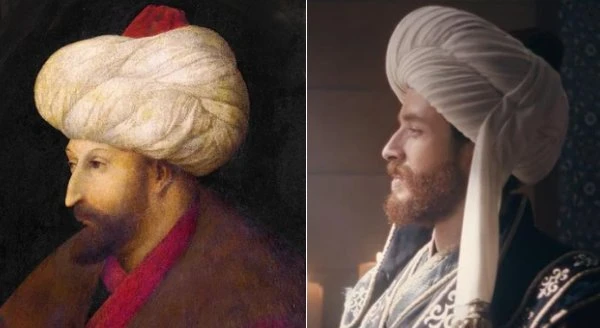
Either way, Mehmed gets the full hero treatment. For a start he is played by the handsome Cem Yigit Uzumoglu, who is a lot better looking than the historical Mehmed if Bellini's portrait is to be believed. He is also portrayed as heroically courageous, leading from the front in a fashion his historical counterpart probably avoided whenever possible. Some of the more unsavoury aspects of Mehmed's character are simply not mentioned.
It is also necessary to portray a hero as succeeding against the odds, which is difficult in this case. The Turkish Conquest of Constantinople had been all but a foregone conclusion ever since the Turks had crossed into Europe a hundred years previously, establishing control of the land on both sides of what was, by the end, little more than a city state. That end had been delayed by the Turks being defeated by even more ferocious Timur at the Battle of Ankara half a century before Mehmed, but Timur was long dead by the time Mehmed marched a huge army to Constantinople, and all he had to do to take it was stay in the field long enough.
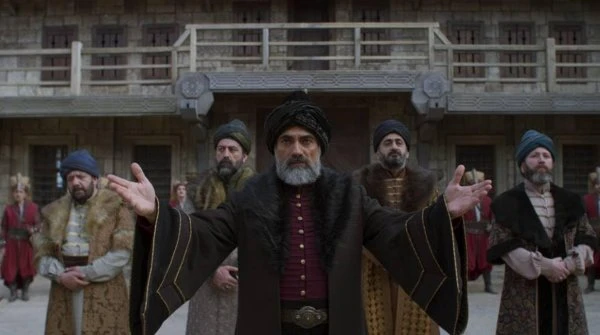
In an effort to increase dramatic tension, the script has Mehmed fighting against a ticking clock in the form of possible intervention by the King of Hungary and perhaps even a Crusade. In reality, Mehmed knew that neither was likely. The previous King of Hungary, who had also been King of Poland and Croatia, not to mention Grand Duke of Lithuania, had led a nominal Crusade that had attracted only a thousand volunteers from outside his own domains. He had been defeated and killed by Mehmed's father, the formidable Murad II, at the Battle of Varna. Mehmed knew that a much weaker King of Hungary and Croatia, who was not King of Poland or Grand Duke of Lithuania, was probably not going to take the offensive after that, or attract many volunteers from the rest of Christendom if he did. The script does not mention any of this.
Indeed, the script is more notable for what it leaves out than for any direct inaccuracy. It also tends to choose the more dramatic option when given a choice between different historical sources, but this is a general licence of which all dramatisations have always taken advantage and understandably so. That said, it is curious that Ottoman rather glosses over the strange episode of Murad's abdication and subsequent resumption of the throne because it misses the opportunity to include a wonderfully theatrical line when the young Mehmed, elevated prematurely and out of his depth in a crisis, is said to have told his father, "If you are Sultan, come and lead your armies; if I am Sultan, I hereby order you to come and lead your armies."
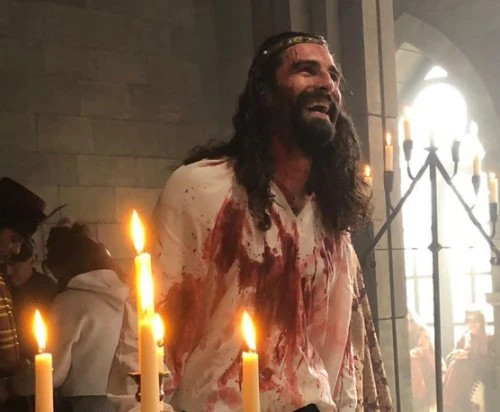
The second season, Mehmed Versus Vlad, also ramps up the tension by implying that there was real doubt about the outcome of what was in reality an almost routine punitive expedition. It is only the involvement of the Voivode Vlad III Dracula, known as Tepes or "The Impaler," that gives it a celebrity touch. In this Turkish production, there is no doubt that Vlad is the villain of the season, the camera lingering on the stakes being prepared for his victims, but Romanian actor Daniel Nuta also invests him with a powerful presence so that one believes this is a man other men would follow freely. The other side of history is that many Romanians view Vlad as a symbol of national resistance. They have a point - as did Vlad himself, quite a lot of them in fact.

Tuba Buyukustun is suitably charming as perhaps the Best Stepmother in History (she loved Mehmed and was very supportive of his projects), Tolga Tekin suitably imposing as Murad (whom he resembles), and Selim Bayraktar suitably treacherous looking as Mehmed's Grand Vizier (whether he really was treacherous is uncertain: the reasons for his execution are unclear, but looking devious seems to have been a mandatory qualification for the post). The supporting cast all take their roles seriously, as does every department in the production crew.
This is only to be expected given the importance of Mehmed in Turkish history. Rise of Empires: Ottoman is a well made presentation of the Turkish point of view that succeeds both as drama because it is compelling, and as documentary because it is at least consistent with known facts. This is not necessarily the same as saying it is the complete truth. Just bear in mind that the Greeks and the Romanians also have their own points of view.
Seen this show? How do you rate it?
Seen this show? How do you rate it?
Published on February 1st, 2024. Written by John Winterson Richards for Television Heaven.



